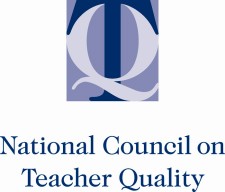

 In our latest report on teacher preparation, Learning About Learning, the National Council for Teacher Quality (NCTQ) found that teacher education very often ignores the research-proven instructional techniques, which should be central to teacher training.
In our latest report on teacher preparation, Learning About Learning, the National Council for Teacher Quality (NCTQ) found that teacher education very often ignores the research-proven instructional techniques, which should be central to teacher training.
The findings in Learning About Learning confirm a trend we’ve increasingly seen in our work– that the field of education does not distinguish between shaky claims and solid science. Previous reports have shown, for example, that teacher education programs expose teacher candidates to about half of the classroom management techniques most strongly supported by research (Training Our Future Teachers: Classroom Management, December 2013) and that fewer than one in five programs cover all of the elements of effective reading instruction (Teacher Prep Review 2014 Report, June 2014).
This mixture of conjecture and science is not advertised as such: virtually all of the textbooks we examined for Learning About Learning claim a basis in research. It’s only after scrutinizing references that we were able to conclude, as others have, that just a tiny fraction deserve to be called scientific research. Two-thirds were books and other secondary sources and, of the few real studies, only a few avoided design problems that limit the value of their conclusions.
With so little attention to strong research, we’ve recently become interested in the question of just how teacher education decides what information is important. Due to its current popularity among education reformers and teacher prep programs, we decided to take a look at “culturally-responsive pedagogy,” commonly referred to as CRP, to gain some insights.
Hundreds of articles have been written on CRP – which advises educators to mold their lessons to be culturally attuned to students, with researchers Gloria Ladson-Billings, Carol D. Lee, and Geneva Gay considered the guiding lights. In our preliminary examination of 14 of the most prominent and frequently cited articles on CRP, we found that four articles were simply thought pieces, not studies at all; seven were clearly inadequate given they did not include quantitative student achievement data; and only three appeared to have some merit, though even these were limited by issues such as small sample sizes and lack of control groups.
NCTQ is deeply concerned that the field of teacher education has allowed effective, research-proven techniques to be crowded out by unproven ideas like CRP or, worse, discredited theories like learning styles. When trendy new ideas are packed into an already overburdened curriculum, teacher candidates are not left with enough time to explore topics in depth, and are denied the benefit of direction on what skills and knowledge will make them most effective with their future students. Like cleaning an overstuffed closet to find the treasures hidden inside, it is essential that programs eliminate theories and conjecture in order to make room for essential evidence-based practices that teachers most need to learn. We encourage teacher preparation programs to focus on the best science in their field, so that new teachers can be truly ready to teach.